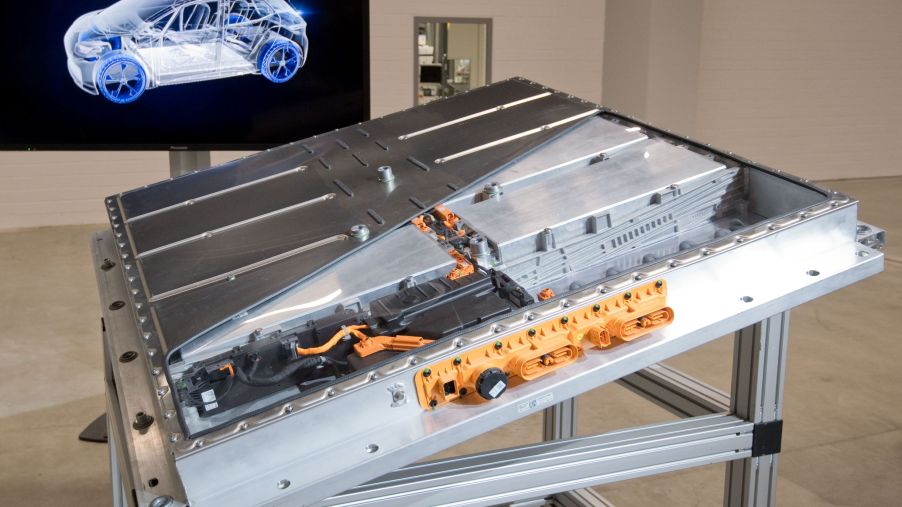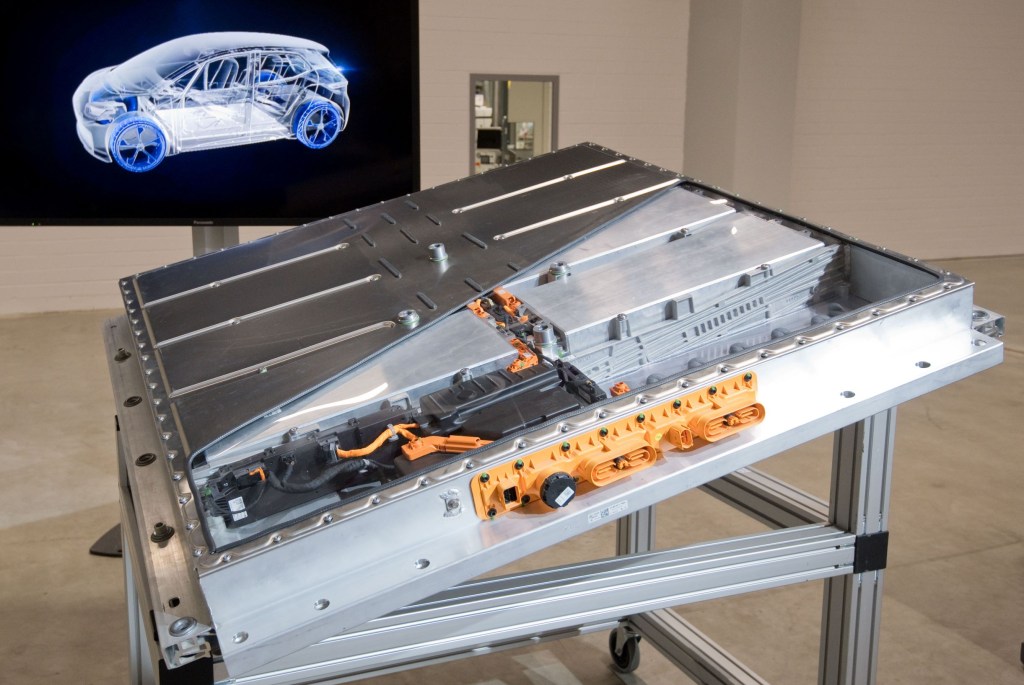
Can You Recycle an EV Battery Like a Conventional Car Battery?
Range has become less and less of an issue for EVs in the past few years. And while that’s partially due to the spread of fast chargers, it’s mostly down to better battery design. However, like ‘conventional’ car batteries, even the best EV battery eventually wears down and needs to be replaced. In the former case, it gets recycled—but what about the latter? Is an EV battery as recyclable as a 12V one?
What makes an EV battery different from a non-electric car battery?
Although EV batteries and non-electric car batteries work fundamentally the same, they differ in a few key places.
Firstly, the vast majority of 12V car batteries use lead-acid chemistry, The Drive reports. As the name implies, these batteries use lead plates as electrodes, bathed in the sulfuric acid that serves as the electrolyte, NAPA explains. Today, many manufacturers have moved away from the traditional ‘flooded’ design to absorbed glass mat batteries, which are leak-proof, recharge faster, resist vibration, and last longer, Battery University reports.

In contrast, although companies like Tesla, Toyota, and Mercedes-Benz are working on alternatives, EV batteries rely exclusively on lithium-ion chemistry. So instead of lead plates and sulfuric acid, these batteries use electrodes made of lithium and several additional materials and electrodes containing lithium salts.
There are a few 12V lithium car batteries, which are significantly lighter than lead-acid ones, Road & Track reports. However, there’s a reason why EVs have battery packs. Instead of a few thick plates, they have a lot of very thin plates, NAPA explains. A 12V car battery is just one cell; a lithium-ion pack contains thousands of cells.

To be fair, EVs, like hybrids, still use conventional 12V batteries to run some of their components. That’s true even in electric motorcycles like the Harley-Davidson LiveWire. And, like any other car battery, they can go flat, as (mild spoilers) Ewan McGregor discovered in Long Way Up.
But what happens when a car battery, for an EV or otherwise, finally dies?
Is recycling EV batteries more difficult than recycling car batteries?
In the case of lead-acid car batteries, they can be recycled. In fact, they need to be, Autoblog explains, because of the hazardous chemicals they contain.
When you need to get rid of an old battery, take to an approved recycling center, or an auto parts store. From there, the battery is safely broken down into its various components, which are recycled individually, Advance Auto Parts explains. The lead plates are melted down and reformed, as is the plastic. The acid, meanwhile, is converted into materials used in textile, glass, and detergent manufacturing.
Despite, or perhaps because of their contents, lead-acid car batteries are one of the most recycled car parts, The Drive reports. Recycled materials make up 90% of their components.
As for EV batteries, they can also be recycled for their raw materials, Bloomberg reports. After that, they’re made into new batteries or repurposed. Renault, for example, is partnering with an energy storage company to use EV batteries to power homes, Motor1 reports.
And, just like lead-acid batteries, they have to be, otherwise, we could end up with a global e-waste crisis, The Verge warns. Doing so would also lessen the harm lithium and cobalt mining does to both people and the environment, The Drive reports. It would also make the packs themselves noticeably cheaper, InsideEVs explains.
However, recycling lithium-ion packs is less profitable than lead-acid ones, because the process creates lower-quality materials, Argonne and Battery University report. Plus, many recyclers just recover the metals, when actually, every bit of a Li-ion battery is recoverable, C&EN reports. And unlike lead-acid batteries, there’s no standard EV design, further complicating things, Vice reports.
Will it be easier in the future?
Luckily, Li-ion EV battery recycling will likely be easier and more efficient in the future.
Tesla’s ex-chief technology officer, JB Straubel, developed the company’s Li-ion battery design, the Wall Street Journal reports. And his startup, Redwood Materials, is working on becoming “the world’s top battery recycling company,” Automotive News reports.
There are also several research teams working on improving Li-ion battery recycling techniques, InsideEVs reports. One German company, Duesenfeld, claims to be able to recover 91% of a Li-ion battery’s internal (the non-plastic) materials. At the moment, the current industry standard is 32%, InsideEVs reports.
In short, although recycling EV batteries isn’t precisely like recycling lead-acid car batteries, we should and must still do it. It just takes a few extra steps.
Follow more updates from MotorBiscuit on our Facebook page.


